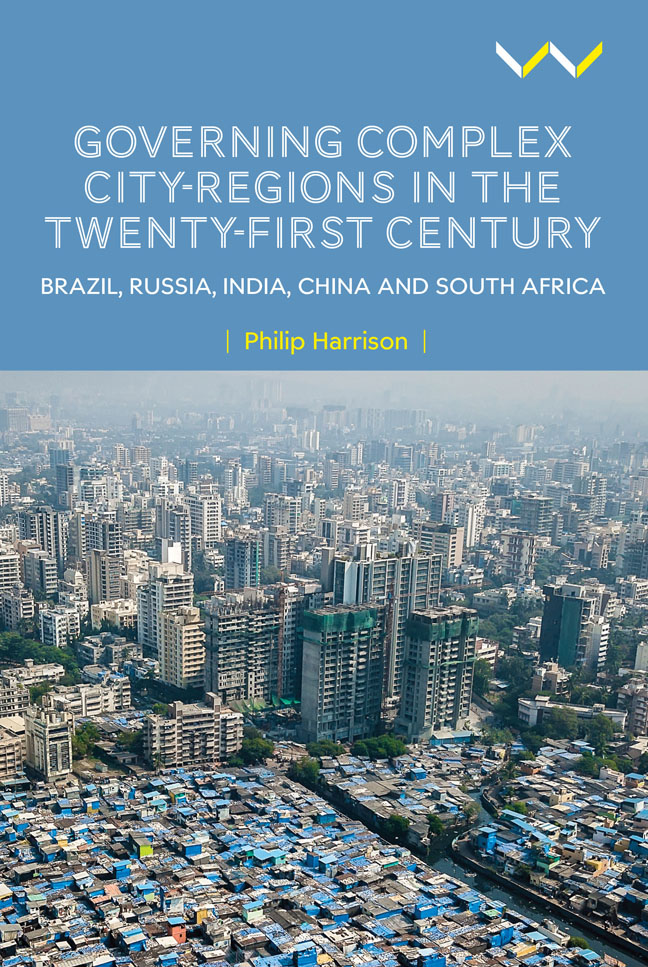 Governing Complex City-Regions in the Twenty-First Century
Governing Complex City-Regions in the Twenty-First Century Book contents
- Frontmatter
- Contents
- List of maps
- Preface
- Acknowledgements
- Acronyms
- Cartography
- Introduction: Exploring hyper-complexity
- 1 The global view: The city-region as material form, discourse and governmental practice
- 2 The governance of Brazil’s metropolitan regions
- 3 The governance of Russia’s urban agglomerations
- 4 Metropolitan and city-region governance in India
- 5 Governing the city clusters of China
- 6 City-region governance in South Africa
- 7 Concluding and comparative insights
- References
- Index
4 - Metropolitan and city-region governance in India
Published online by Cambridge University Press: 02 March 2024
- Frontmatter
- Contents
- List of maps
- Preface
- Acknowledgements
- Acronyms
- Cartography
- Introduction: Exploring hyper-complexity
- 1 The global view: The city-region as material form, discourse and governmental practice
- 2 The governance of Brazil’s metropolitan regions
- 3 The governance of Russia’s urban agglomerations
- 4 Metropolitan and city-region governance in India
- 5 Governing the city clusters of China
- 6 City-region governance in South Africa
- 7 Concluding and comparative insights
- References
- Index
Summary
Introduction
‘Like some ancient palimpsest’
There is nothing simple about India; we could get lost in debates over India’s political culture. As James Chiriyankandath (1996, 46) put it: ‘It is unlikely that we could refer to a peculiarly Indian political culture in any more-or-less meaningful sense than we could to an all-European political culture, embracing the post-Communist east as well as the member states of the European Union.’ The secular rationalism of Jawaharlal Nehru’s modernising project is there together with Gandhian spirituality, religious mythology, linguistic identities, regional vernaculars, caste, charismatic traditions, dominant masculinity, family dynasties, market rationalities, socialist orientations, personal rent-seeking, bureaucratic elitism and much more. The founding prime minister, Nehru, described India as being ‘like some ancient palimpsest on which layer upon layer of thought and reverie had been inscribed, and yet no succeeding layer had completely hidden or erased what had been written previously’ (Nehru cited in Khilnani 2003, xv). For Chiriyankandath (1996, 46), India has a ‘plural heritage’ but also ‘the capacity to accommodate rival cognitive systems’. Nevertheless, aspects of Indian political culture do surface more forcefully at times although always in a complex intersection with others. In contemporary India, for example, Hindutva (Hindu national consciousness) as a cultural ideology has become politically significant, although it has not fully eclipsed secular traditions of governance.
This is the broad context for India’s metropolitan and city-region governance experiments. The chapter continues with a historical account that further explores India’s many political cultures and its evolving political settlement, which has given significant powers to state governments at the expense of local authorities. It then provides a brief introduction to urban India before exploring the discourse and practice of metropolitan and city-region government with a particular focus on Delhi and the surrounding national capital region (NCR).
Historical embedding
The impossible question is where to begin and how much detail to provide as India’s contemporary diversity and complexity have deep roots in the multiple histories of the Indian sub-continent. Rather than a single state, historical India was a patchwork of interrelated polities, although there were periods in which individual states came to dominate large parts of this territory, such as the overlapping (Hindu) Maratha Confederacy (1674 to 1818) and the (Muslim) Mughal Empire (1526 to 1857).
- Type
- Chapter
- Information
- Governing Complex City-Regions in the Twenty-First CenturyBrazil, Russia, India, China, and South Africa, pp. 91 - 116Publisher: Wits University PressPrint publication year: 2023


